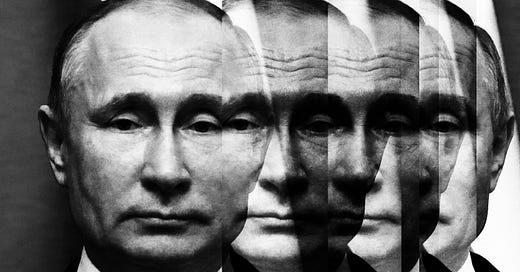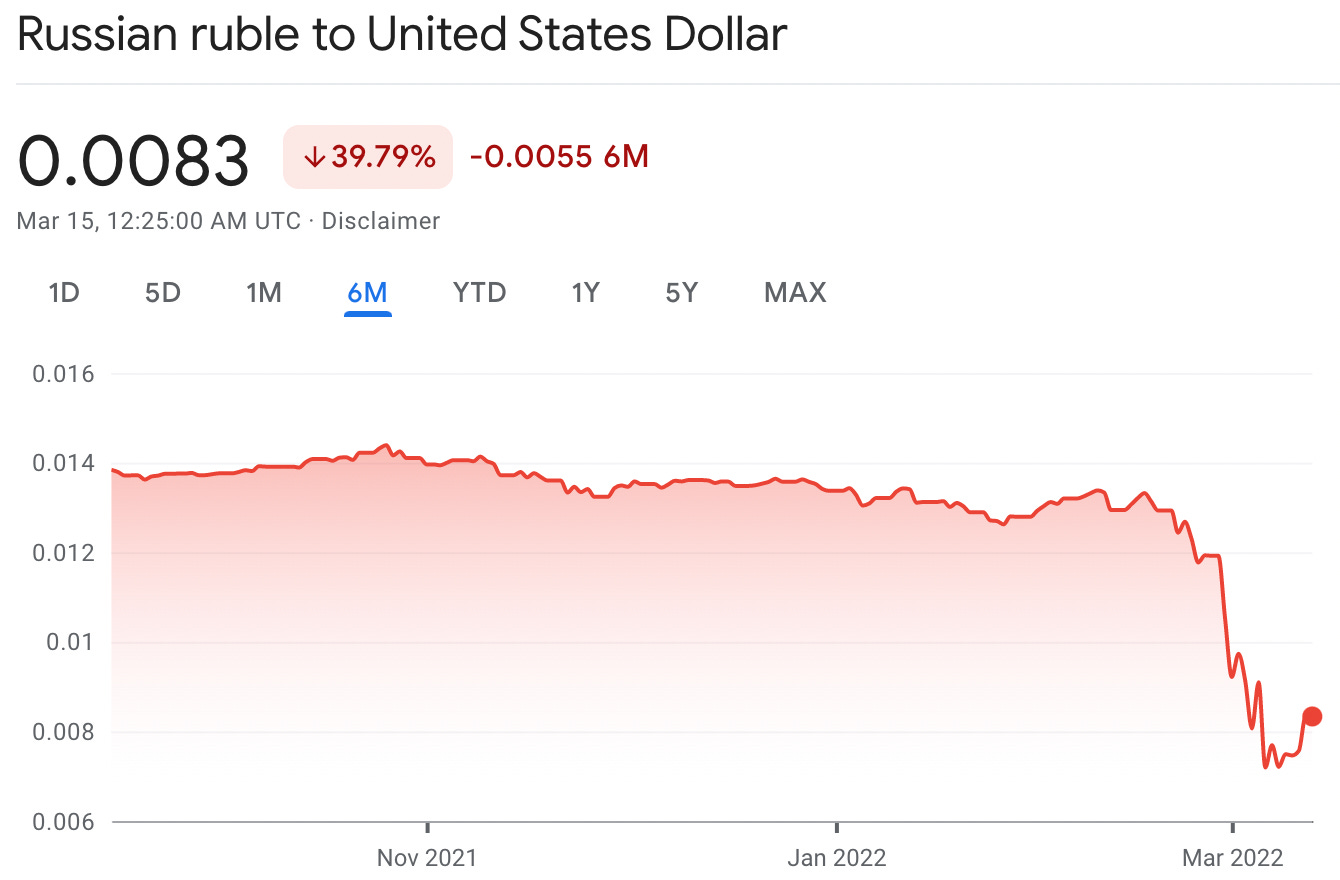Heads up: We have neoliberal rock star Noah Smith sitting in with us on Thursday Night Bulwark this week to talk about the economic war. Put it on your calendar now.
1. Truth vs. Lies
If you missed Charlie’s item on Marina Ovsyannikova, please go back and read it. This woman is courage personified.
This Russian woman could have kept her head down and just done her job. No one would have blamed her. Or she could have sneaked quietly out of Russia, as many Russians seem to be doing.
Instead, she stepped forward and raised her voice, in full view of her countrymen.
Marina Ovsyannikova is a hero. May God protect her. (Update1)
Meanwhile, David Epstein has a good interview with Lisa Fazio, a psychologist who studies misinformation. It’s worth reading in full all on its own, but it puts into relief how important Ovsyannikova’s public stand is in terms of countering Putin’s propaganda:
David Epstein: Putin has been repeating this idea that he wants to “De-Nazify Ukraine,” which sounds random and ridiculous to a lot of the rest of the world. But apparently state-controlled media has been building up that idea in Russia for years now. As Novaya Gazeta, one of the last independent outlets in Russia put it: “Russian television never tires of reminding about the Nazis.” I think this might be related to the “illusory truth effect” you’ve studied. Can you explain that?
Lisa Fazio: This is a term we use for the finding that when you hear something multiple times, you're more likely to believe that it's true. So, for example, in studies, say that you know that the short, pleated skirt that men wear in Scotland is called a “kilt,” but then you see something that says it’s a “sari.” You’re likely to think that’s definitely false. If you see it twice, most people still think it's false, but they give it a slightly higher likelihood of being true. The illusory truth effect is simply that repetition of these statements leads to familiarity and also to this feeling of truth.
DE: Is it possible those people just didn’t know the correct answer to begin with?
LF: We’ve studied that, and this is true even for people who answered the question correctly two weeks earlier. When you present the false statement twice, they’re still more likely to think that it’s true.
Fazio discusses how the more a lie is repeated, the stronger its hold on people. And a single counter, like Ovsyannikova’s protest, isn’t going to undo all of that. Yet merely putting the statement out there—having one person willing to risk everything to say the truth—is powerful.
Now, you can’t beat the lies just with truth. Fazio talks about what she calls a “truth sandwich”:
Facts are useful, but not enough to actually fix the issue. You have to address the false information directly. So in a truth sandwich, you start with true information, then discuss the false information and why it’s wrong — and who might have motivation for spreading it — and come back to the true information. It’s especially useful when people are deliberately misinforming the public. So for someone who has a false belief about climate change, if you can pull back the curtain and say, “No, actually this is a narrative that's been pushed by these oil companies with these motivations for having you believe this. Here's why it's wrong and here is what's actually true." . . .
People have already created this causal story in their mind of how something happened. So in a lot of the experiments, there’s a story about how a warehouse fire happens. And initially people are provided with some evidence that it was arson — there were gas cans found on the scene of the crime. And then in one case you just tell people, "Oh, oops, sorry, that was wrong. There were no gas cans found there." Versus in another you give them an alternative story to replace it — that there weren't any gas cans at all; instead, it turns out that there was a faulty electrical switch that caused the fire. If you only tell people the gas cans weren't there, they still think it's arson. They just are like, "Oh, yeah. The gas cans weren't there, but it was still arson, of course." Whereas in the second story, they'll actually revise the story they had in mind and now remember it was actually accidental.
The truth isn’t enough, all on its own, to counter lies. You need more.
But cannot defeat the lies without it.
2. Doing Business with Russia
It was very nice to see so many Western corporations pulling out of Russia in protest of the invasion of Ukraine.
On the other hand: What was the alternative? If you’re Apple and you had kept selling iPhones in Russia,2 then how would Russians pay for them? A year ago, an iPhone in Russia would run you about 80,000 rubles. Not no more.
When currency exchange rates go haywire at this magnitude, you can’t buy and sell goods with any confidence. Russia isn’t in Weimar Republic levels of dysfunction yet. But you can see it on the horizon.
How does Putin rescue the Russian economy?






